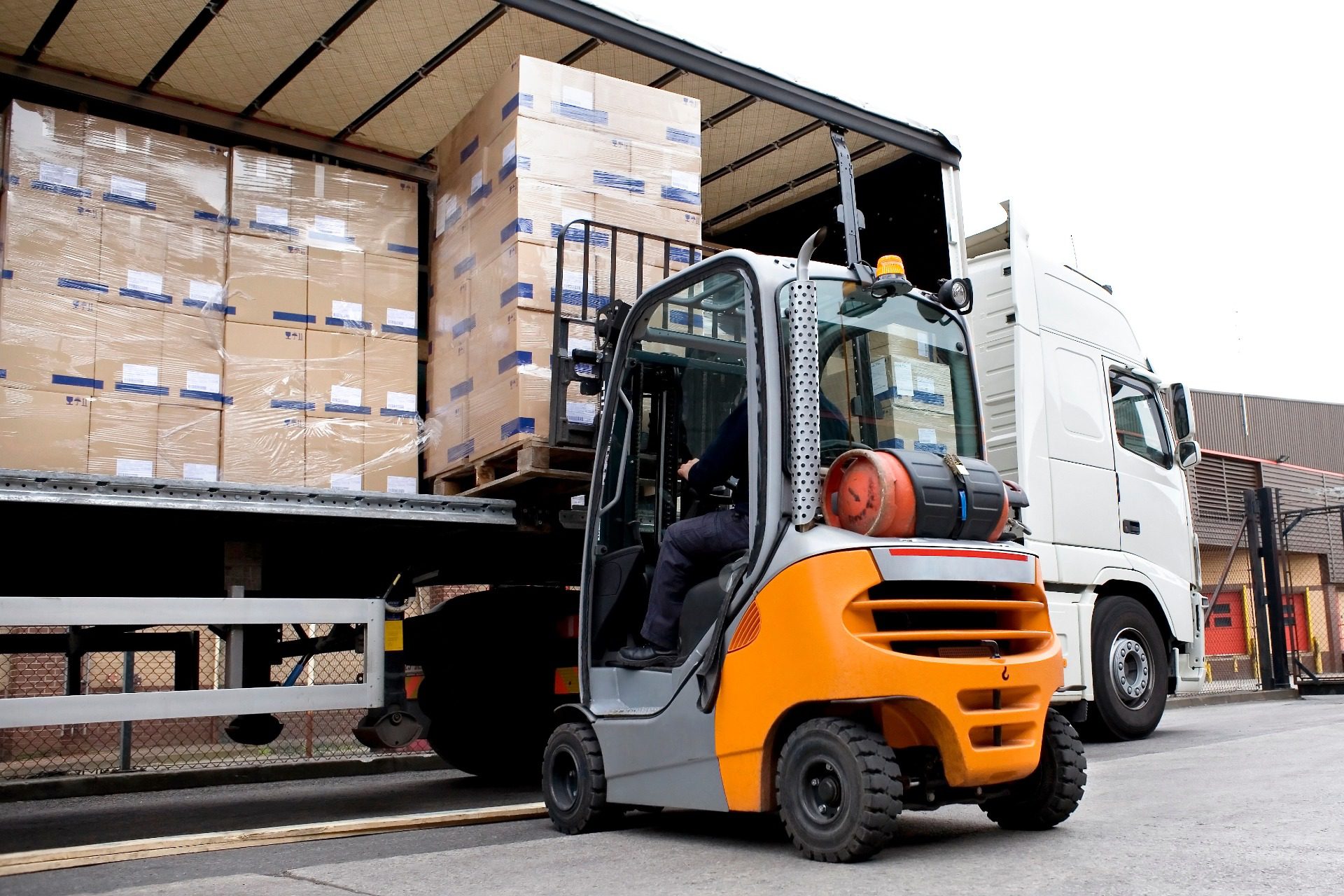Business-to-business, or B2B, fulfillment is the process of storing, picking, packing, and shipping products from one business to another. It differs from business-to-consumer, or B2C, fulfillment in that products are moved from one business to another and not from a business to the consumer. One similarity between B2B and B2C fulfillment, however, is the importance of maintaining effective supply chain operations to ensure the timely delivery of goods.
What is B2B Fulfillment and Why It Matters?
Just how do you define B2B order fulfillment? As we said, it’s the process of storing, picking, packing and shipping goods from one business to another. But it involves a lot more complex logistics than what you may initially think, especially when you compare it to B2C fulfillment. While you might think that B2B fulfillment would be easier and more laid-back than sending to consumers, consider this: B2B fulfillment often includes bulk orders, pallet shipments and more specialized handling just based on the types of products that are being exchanged.
So why does B2B fulfillment matter so much? Similar to how B2C fulfillment builds customer loyalty, good B2B fulfillment can build strong business relationships and help partnerships flourish. Whether you’re an ecommerce business or function out of brick and mortar stores, B2B fulfillment can help build your company’s reputation as an industry leader and create high levels of customer satisfaction, even if it is another business that is serving as your “customer.” Business customers matter too and often account for a large sum of operating revenue.
Key Differences Between B2B and B2C Fulfillment
We have already discussed the main key differences between B2B and B2C fulfillment, but more differences are worth noting. For instance:
- B2C fulfillment tends to consist of numerous smaller orders for many consumers, while B2B is often one large bulk order for a single buyer.
- While both B2B and B2C fulfillment involve fast shipments, B2B fulfillment has the challenge of managing both fast and complex shipments.
- While customer service is important in B2B and B2C fulfillment, efficiency tends to be more important for the former and customer service tends to be more important for the latter.
- There tend to be more complicated rules and regulations to follow in B2B shipping compared to B2C shipping, which can be difficult to stay compliant with.
- B2C shipping has become increasingly competitive, with many firms offering promotions or subscriptions to consumers for expedited shipping.
How Does B2B Fulfillment Work?
If you’re only familiar with B2C fulfillment, you may not quite understand how B2B fulfillment works. Here’s an overview of the process that a fulfillment provider, like ShipCalm, will cover:
Inwards goods
The inwards goods process is essentially the process of receiving stock raw materials.
Inventory storage
Once these goods are received, they’re either put in storage or allocated for fulfillment. If they’re stored, they’re typically only stored as long as necessary to ensure timely distribution to both reduce storage costs and better streamline cash flow.
Order processing
Efficient order processing involves managing and tracking B2B orders that are placed by other businesses.
Order picking
Next up is picking, which follows any placed order. As orders are fulfilled, they must be properly picked to ensure the right goods are going to the right business clients. While some fulfillment still relies on manual picking operations, more and more are integrating robots and autonomous technology to help streamline operations.
Packing
Once orders are picked, it’s time for them to be packed. Usually, this is done with boxes, bags, containers, pallets and more.
Shipping
Next up is the shipment of the product to the other business. Depending on the type of products and how far the products need to be shipped will determine the shipping method. Often, B2B fulfillment relies on transport providers to ship products. In some cases, more than one shipment or stops at various fulfillment centers may be necessary to deliver all the ordered products.
Delivery
The conclusion to any shipment is delivery, or when any shipped product reaches its final destination.
Returns processing
In some cases, accepting returns may be necessary – especially if a business customer over-ordered. In other cases, returns may be necessary in the case of faulty or damaged products. Accepting returns is a part of doing business. Also known as reverse logistics, returns management is important to do quickly to ensure customer satisfaction.
How do I Scale my Businesses for B2B Fulfillment?
As businesses scale, the complexity of B2B fulfillment increases significantly:
- Managing a growing number of bulk orders across multiple sales channels becomes challenging.
- Integrating orders from different platforms and coordinating fulfillment is complex.
- Accommodating an expanding product range and ensuring efficient inventory management is difficult, especially for products with many variants or components.
Limited warehouse capacity makes it hard to scale fulfillment operations to meet increasing demand. More space, labor, and infrastructure are needed as order volume grows.
To overcome these challenges, scaling businesses need a robust B2B fulfillment solution that can:
- Integrate seamlessly with existing sales channels and marketplaces to efficiently manage incoming B2B orders from all sources in one system.
- Offer scalable warehouse space, fulfillment infrastructure, and labor to flexibly accommodate business growth and seasonal peaks in demand.
- Provide real-time inventory visibility and data insights to optimize stock levels across SKUs, avoid stockouts, and ensure orders can be fulfilled efficiently.
- Leverage technology like automation, order management systems (OMS), and fulfillment software to streamline processes as order volume increases.
An optimized B2B fulfillment operation built on these capabilities allows businesses to scale successfully. It provides the flexibility, visibility, and efficiency needed to manage increasing complexity as B2B order volume grows across expanding sales channels and product lines. The right B2B fulfillment partner can provide the physical infrastructure and technological foundation to support business growth objectives.
What’s the Difference between B2B and B2C fulfillment?
| Aspect | B2B (Business-to-Business) | B2C (Business-to-Consumer) |
| Unit Volume of Orders | Bulk quantities but fewer transactions. | Higher order volume, each order being smaller. |
| Cost of Fulfilling Orders | More labor, specialized equipment, and infrastructure result in higher costs. | Streamlined processes and optimized systems reduce overall fulfillment costs. |
| Need for Regulations | Compliance with extensive supply chain regulations, including EDI for data privacy. | Simpler regulations focusing on consumer expectations and legal requirements. |
| Fulfillment Speed | Reliability and guarantee of delivery dates are prioritized over speed. | Speed is crucial to meet consumer expectations, with same-day delivery becoming more prevalent. |
| Procurement Contracts and Payment Plans | Long-term contracts with significant financial implications, including credit-based payment plans. | One-time purchases with immediate payment upon order placement or delivery. |
| Product Pricing | Negotiable pricing based on specific business needs and transaction volume. | Standard, non-negotiable prices applicable to all consumers. |
Benefits of Optimized B2B Fulfillment
Time is money, and any opportunity to streamline B2B fulfillment should not be wasted. There are many benefits associated with optimizing B2B fulfillment. These include:
- Improved efficiency
- Cost savings
- Faster order processing
But beyond what it can do for your business, it can have even more of an impact on your relationships with business customers. For instance, optimizing B2B fulfillment leads to improved overall customer satisfaction, which can drive further business growth and development.
Choosing the Right B2B Order Fulfillment Service
It goes without saying that not all B2B order fulfillment services are created equal. So how do you go about selecting the right one for your business? There are various key considerations that you want to weigh, including:
- EDI compliance: EDI stands for “electronic data interchange,” and it represents a company’s ability to exchange information and documents with trading partners. There are more than 100 types of EDI documents and each business involved in a transaction must comply with such standards. The right B2B fulfillment service can help.
- Responsive customer support: Issues are bound to pop up. When they do, you want to rest assured that you’re able to get the support you need.
- Efficient order and inventory management systems.
When selecting the right fulfillment service, be sure you weigh your options carefully and select the one that best aligns with your industry and your specific business needs.
Challenges Faced by Businesses When Implementing an OMS
There are a number of technical and organizational hurdles involved when it comes to integrating an OMS with existing systems – from integration complexity to security risks. So how can you ensure a smooth transition? It all starts with knowing the service that you’re considering and how it’s going to impact your business. Make sure you’re aware of some of these intangibles while you’re weighing services and have a full and clear understanding of what to expect when it comes to implementation.
The Future of B2B Fulfillment: Trends and Innovations
Like everything, B2B fulfillment isn’t something that’s sitting static – services are always improving with time. For instance, AI is playing a role in many aspects of business these days, and B2B fulfillment services are no exception. Other emerging trends include blockchain transparency, predictive analysis and machine learning. Businesses serious about growing and establishing themselves as industry leaders should embrace these emerging trends to stay ahead of others in a competitive business environment.
Adapting to Changing Market Demands
In order to establish competitive advantages, businesses need to change and evolve to meet the needs of their customers and establish competitive advantages. Agile fulfillment strategies and flexible logistics solutions are two key things that can help a business take that next leap. Good, responsive customer service is also important to navigating a competitive business landscape.
Strategies for Scaling B2B Fulfillment Operations
How do you scale up your business to expand B2B fulfillment strategies? It all starts with the right solution. The right B2B fulfillment solution can help you expand warehouse capacity and further optimize transportation networks. Carefully analyzing data-driven insights can also be beneficial for scaling your operations. Some of the ways to get the most out of your data include:
- Setting goals and monitoring progress toward meeting them
- Identifying the sources you’re going to pull data from
- Organizing the data so that it’s easy to understand
- And, finally, acting on the data.
Ensuring Compliance and Security in B2B Fulfillment
B2B fulfillment is a bit more regulated than B2C fulfillment so as companies adapt and change to continue to meet the needs of their business customers, they must ensure that they’re meeting all necessary regulations and guidelines. Failure to do so doesn’t just potentially lead to legal troubles and punishment, but it can cause your company to lose the trust of the customer base that it has worked so hard to earn.
Final Thoughts
As you can see, B2B fulfillment is a bit more complex than B2C – but the right solutions can help streamline your operations, build your business relationships and drive further growth.
Like anything, B2B fulfillment continues to advance and evolve – and your small business needs to change to stay competitive and advance and evolve along with it. It’s where a good solution can pay dividends and where quality support and service can help drive innovation and change.
ShipCalm for B2B Fulfillment
For more information on an industry-leading B2B fulfillment solution, contact ShipCalm today. With vast expertise and experience in delivering leading B2B fulfillment solutions, ShipCalm specializes in tailoring these solutions to each specific company’s needs. Plus, when you choose ShipCalm as a fulfillment partner for your B2B fulfillment needs, you’ll receive access to advanced technology, scalable operations and dedicated customer service and support. Contact us today to boost your competitive advantage and for more information and pricing details on the ShipCalm solution.
FAQs
What are the key differences between B2B and B2C fulfillment?
Aside from the main difference between B2B involving business-to-business sales and B2C involving business-to-consumer transactions, various other key differences are worth noting. B2B fulfillment tends to be more regulated and involves more complicated shipments. It also often only involves one buyer, whereas B2C fulfillment involves many buyers. Similar to B2C fulfillment, speed is still an important factor.
How can businesses benefit from implementing B2B fulfillment solutions?
The right B2B solution can go a long way for a business. Some of the key benefits include the likes of improved efficiency, cost savings and fast order processing. Arguably the biggest gain a business can realize from implementing the right B2B fulfillment solution is strengthening the relationships with its business customers.
What role does technology play in optimizing B2B fulfillment processes?
From AI to predictive analysis to machine learning, as technology improves, so too do B2B fulfillment process solutions. When businesses leverage these technologies and work them into their operations, significant gains can be realized. Technology can help firms adapt and adjust to changing market conditions, scale their operations and ensure they stay compliant.
How can companies ensure reliable order fulfillment for B2B clients?
From using forecasting technology to better prepare for peak seasons to ensuring there’s an accurate read on inventory, there are many strategies to help ensure reliable order fulfillment. A quality B2B fulfillment service can help.
What trends are shaping the future of B2B fulfillment?
Some of the leading trends to be on the lookout for include AI, machine learning and predictive analysis. Many of the same technologies that are shaping the future of other industries are also shaping the future of B2B fulfillment.
What are the challenges faced in scaling B2B fulfillment operations?
Being compliant with regulatory guidelines is one major challenge of B2B fulfillment. Another major challenge is the complexity of a lot of B2B shipments. They tend to be much larger and more complex orders than B2C fulfillment, for example.
How important is sustainability in B2B fulfillment practices?
Sustainability is good for your business, good for the environment and good for your brand’s reputation. It’s good for business because it often means reduced energy usage and cost savings. It’s good for the environment because it reduces carbon emissions. And it’s often good for your brand’s reputation because more and more consumers are considering sustainable business practices before working with a company.




